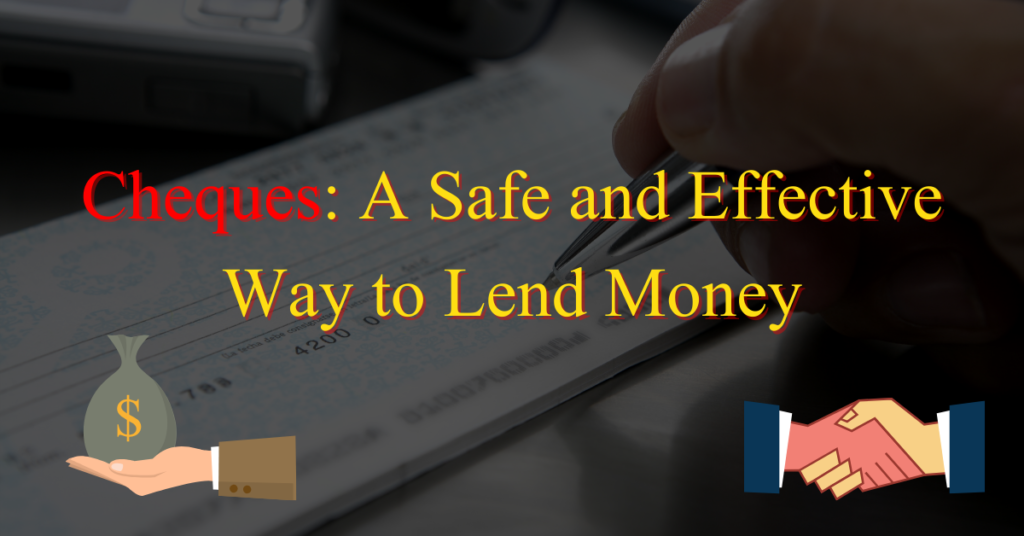
Cheques are a widely used financial instrument that offer a secure and convenient way to transfer funds. They are considered negotiable instruments, meaning they can be transferred from one person to another. When you lend money to someone using a cheque, you have several legal remedies available to protect your interests.
Understanding Cheques
A cheque is a written order drawn on a bank, instructing it to pay a specified sum of money to a named payee. When you issue a cheque to someone, you are essentially authorizing the bank to transfer funds from your account to theirs.
Safeguards for Lenders
- Endorsement: A cheque must be endorsed by the payee before it can be cashed or negotiated. This adds a layer of security and helps prevent fraudulent transactions.
- Crossing: Crossing a cheque restricts its transferability. It can be crossed generally (payable at any bank) or specifically (payable at a particular bank). This reduces the risk of the cheque being stolen or misused.
- Stop Payment Orders: If you believe a cheque has been lost or stolen, you can issue a stop payment order to your bank, preventing it from being cashed.
Legal Remedies for Non-Payment
If the recipient of a cheque fails to cash it within a reasonable time, you can take legal action to recover the funds. Here are two common remedies:
- Summary Suit Under Order 37: This is a speedy procedure under the Code of Civil Procedure (CPC) that allows you to recover the cheque amount without going through a lengthy trial. If the defendant fails to file a written statement within the specified time, the court can grant a decree in your favor.
- FIR Under Section 489-F: If you suspect that the cheque has been dishonored due to insufficient funds or fraudulent means, you can file a First Information Report (FIR) with the police under Section 489-F of the Pakistan Penal Code. This can lead to criminal proceedings against the drawer of the cheque.
Conclusion
Cheques provide a secure and convenient method for lending money. By understanding the legal safeguards available to you, you can protect your interests and take appropriate action in case of non-payment.
Also read: A Guide to Trademark Protection in Pakistan
Steps in a Criminal Case in Pakistan

